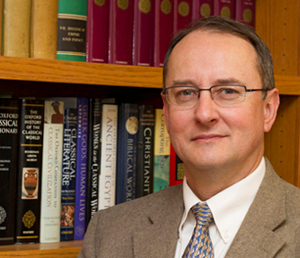Next month, more than 5,000 new graduates of the College of Arts and Sciences will receive the bachelor’s degrees they have worked so hard to earn. Their undergraduate careers have coincided, almost exactly, with the “great recession” that began in 2008 and from which the national and world economy is still struggling to recover. The impact of this recession upon these students and their families has been profound.
Since 2008, this year’s graduates will have seen state support for the cost of their education drop by more than 50%, while their tuition has risen by 60%. Levels of indebtedness among students and their families have risen, even as employment opportunities have diminished. And although national unemployment rates have declined from their peak, unemployment among young people remains stubbornly high, at almost twice the national average.

Our students are understandably concerned about their employability when they graduate. Their concerns are reflected in some striking changes in student enrollment patterns over the past four years within the College of Arts and Sciences. Between 2009 and 2013, total enrollments (measured in student credit hours) in our Arts division have dropped by 4%. In the Humanities, the drop was almost 7%. In the Social Sciences, enrollments dropped by almost 12%. Enrollments in natural sciences and mathematics, by contrast, rose almost 15%, resulting in a College-wide decline in student credit hours of only about 1%. Similar shifts in enrollment patterns are being reported at many other top public universities in the country, suggesting that this is a national trend.
Students across the country and at the UW are clearly listening to the chorus of voices in the media and public life that have been telling them that unless they study STEM fields (science, technology, engineering, and mathematics) they will never find a job. They are hearing that employers aren’t interested in history or philosophy or English or art majors, and that graduates from non-STEM majors will not only have a harder time finding their first job but will also earn less over the course of their careers than will business, engineering, or natural science majors.
For 70 years, students broadly educated in the liberal arts have, on average, significantly outstripped business and engineering graduates in lifetime earnings and in career satisfaction.*
But are these claims true? There is much evidence to suggest that they are not. For 70 years, students broadly educated in the liberal arts have, on average, significantly outstripped business and engineering graduates in lifetime earnings and in career satisfaction*. When the CEOs of Fortune 500 companies were polled some years ago, the largest single number of them proved to have been undergraduate history majors. When Forbes Magazine recently listed the ten most powerful CEOs in America under the age of 40, seven of the top ten were liberal arts majors. And in 2012, when the top 1% of American wage earners were asked what they had majored in as undergraduates, arts and sciences students once again dominated the list. Economics majors led the way, followed by political science, art history, and religious studies majors. Finance, pharmacy, and accounting made up the rest of the top seven majors, which together accounted for more than a third of the total responses.
There are reasons why arts and sciences graduates are so successful. With their broad educational background and their strong analytic and communications skills, our students are adaptable and intellectually wide-ranging. They see the connections between disparate bodies of knowledge, and they are not locked into any single mode of thinking. In a rapidly changing economy, these are highly advantageous qualities. Current estimates suggest that students graduating in 2013 will hold 15 different jobs before they retire. Many of the jobs these graduates will hold don’t even exist in 2013, because they haven’t yet been invented. In such a world, preparation for a first job matters, but preparation for third, fourth, and tenth jobs will matter much more over the course of our students’ careers. And that is precisely the preparation that an arts and sciences education provides.
Let me be clear. I am not arguing that fewer students should study natural sciences and mathematics. Science and math have been important elements in an arts and sciences education for 2,500 years, and I trust they will remain so. Rather, my concern is that too many of our students are being misled into thinking that they are wasting their time if they study any subjects other than math and science, and that as a result, they are choosing not to take courses in the arts, humanities, and social sciences that are in fact critical to their own futures and to the future of our society.
None of the great theorists of democracy believed that a populace ignorant of history, literature, philosophy, and government could preserve its freedom. I see no reason to doubt their judgment. We will all lose something vital to our democracy if the current generation of students chooses to neglect this kind of an education in the mistaken belief that only by so doing can they find and keep a job. It is our responsibility, as citizens and as educators, to do all we can to ensure that this does not happen.
Robert Stacey
Dean, College of Arts and Sciences
* From “Making the Case” by Kevin Kiley, published in Inside Higher Education, November 19, 2012. A similar argument is made in a report from the Council of Independent Colleges.